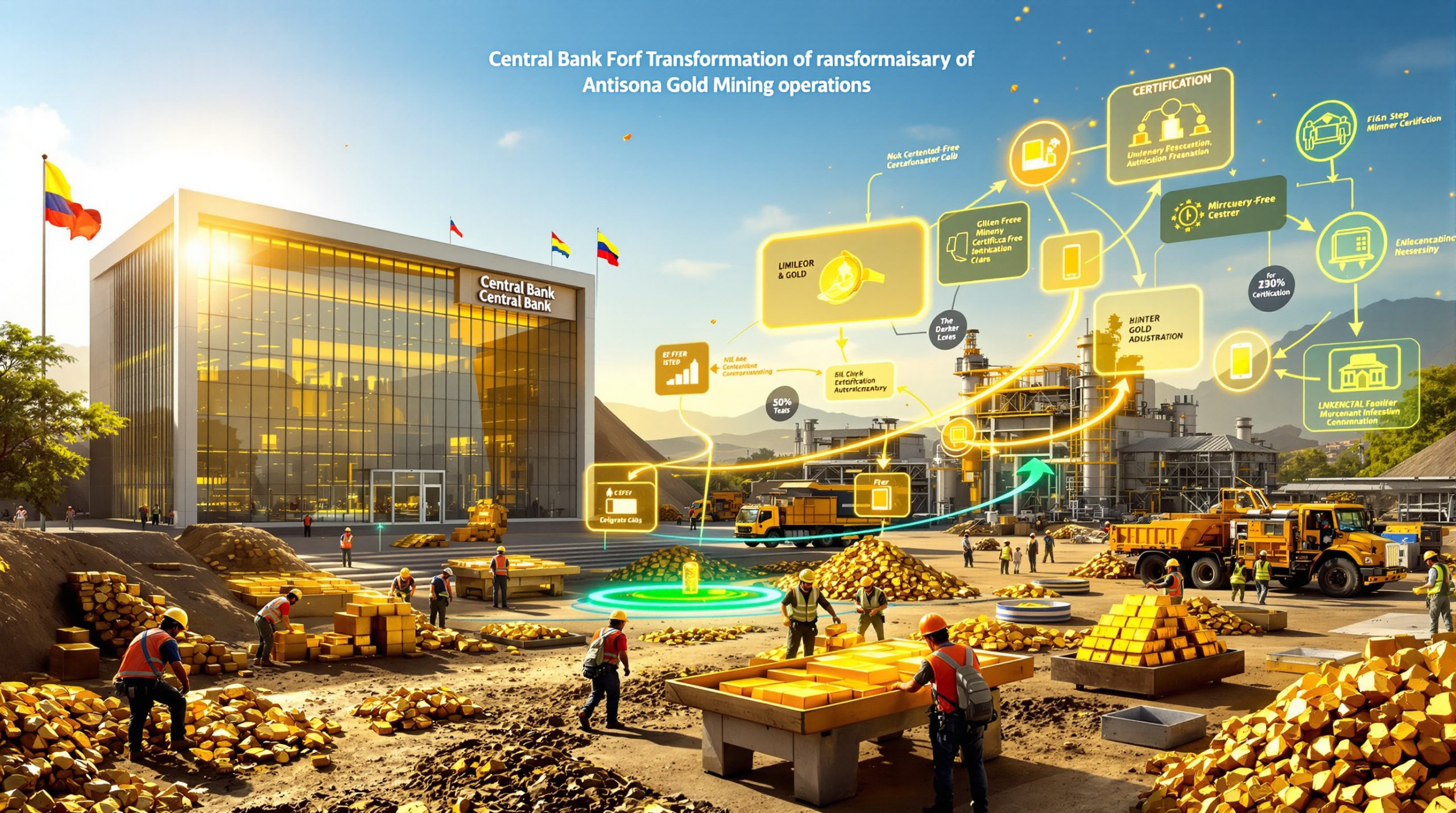Understanding the Regulatory Framework
Modern lithium extraction operations require comprehensive permitting across multiple regulatory jurisdictions, often involving complex multi-stage approval processes that can span several years. The regulatory landscape encompasses federal, state, and local approval systems, each with distinct requirements for environmental assessments, community consultations, and technical reviews.
Recent developments in the lithium sector demonstrate this complexity. Vulcan Energy's construction permit for their Lionheart Project in Germany provides a practical example of sequential regulatory approvals, where the company received building permits for their 30 MW geothermal plant and electrical substation in June 2025, followed by land acquisition approval from the City of Landau in September 2025, and finally their lithium extraction plant permit in November 2025.
This sequential approval pattern illustrates how modern lithium extraction plant permit requirements involve coordination across different administrative bodies and regulatory frameworks. The integrated nature of many contemporary lithium projects, which often combine renewable energy generation with extraction operations, adds layers of regulatory complexity requiring specialized expertise in multiple regulatory domains.
Core Permit Categories for Lithium Operations
Lithium extraction projects typically require permits across several distinct categories, each with specific technical and environmental compliance requirements. The Vulcan Energy case study demonstrates four primary permit categories that projects must navigate successfully.
Environmental Compliance Permits
• Water discharge and pollution control authorizations requiring detailed groundwater monitoring systems
• Air quality and emissions monitoring licenses with continuous compliance tracking
• Waste management and storage approvals for lithium extraction residues
• Groundwater protection certifications with mandatory reinjection protocols
Operational Permits
Mining companies must secure multiple operational authorizations before commencing lithium extraction. Furthermore, the mine planning process has evolved significantly to incorporate modern ESG considerations. The Vulcan project required separate permits for their geothermal energy component (30 MW power plant), land development approvals for their integrated facility site, and specialized lithium extraction plant authorization utilizing their proprietary VULSORB® adsorbent technology.
These operational permits often include construction and development approvals, industrial facility operating licenses, and transportation and logistics authorizations. The complexity increases when projects integrate multiple technologies, as seen with Vulcan's combination of geothermal power generation producing 275 GWh power capacity and 560 GWh heat capacity alongside 24,000 tonnes per annum of lithium hydroxide production – sufficient supply for approximately 500,000 electric vehicles annually.
Timeline Variations by Region
Permitting durations vary significantly based on geographic location, project complexity, and regulatory frameworks. European operations demonstrate potentially faster approval timelines through streamlined coordination processes, as evidenced by recent project developments.
The Vulcan Energy Lionheart Project timeline provides insight into European permitting efficiency. Their major permits were secured over a five-month period from June to November 2025, demonstrating relatively expedited processing when projects align with strategic policy objectives. This timeline included coordination across multiple regulatory bodies for integrated facilities combining geothermal energy and lithium extraction operations.
| Permit Type | Approval Date | Processing Entity |
|---|---|---|
| Geothermal Plant Permits | June 2025 | German State Regulators |
| Land Acquisition Approval | September 2025 | City of Landau |
| Lithium Extraction Plant Permit | November 2025 | State Mining Authority |
| Central Lithium Plant Permit | September 2025 | Frankfurt Industrial Park |
Factors Influencing Approval Speed
Project complexity significantly impacts permitting timelines. Vulcan's integrated approach, combining a 30 MW geothermal facility with lithium extraction operations, required coordination across multiple regulatory frameworks yet achieved relatively rapid approval. Several factors contributed to this efficiency:
• Strategic alignment with EU critical raw materials policy objectives
• Location advantages within established geothermal infrastructure in Upper Rhine Valley
• Technology integration using zero fossil fuel extraction processes
• Modular design enabling phased development across future expansion phases
The project's focus on establishing a sustainable, domestic lithium source supporting European battery and automotive industries appears to have supported regulatory prioritization, suggesting that alignment with government supply chain resilience goals may accelerate approval processes.
Environmental Standards for Lithium Extraction Plants
Modern environmental standards for lithium extraction emphasize closed-loop systems and renewable energy integration. Contemporary projects demonstrate increasingly sophisticated approaches to water resource protection and emissions control.
Water Resource Protection Requirements
Current best practices focus on subsurface brine management rather than surface discharge systems. The Vulcan model demonstrates this approach through their closed-loop reinjection system, where lithium-rich brine sourced from Upper Rhine Valley geothermal wells undergoes processing through proprietary VULSORB® technology before lithium-depleted brine returns to the reservoir.
The system operates through intermediate heat exchangers that transfer geothermal heat to industrial water circuits. Hot industrial water circulates via pipelines to district heating and power generation facilities, while cooled water recirculates for reheating. This closed-loop design minimizes freshwater consumption and eliminates surface water discharge requirements.
Air Quality and Emissions Standards
Contemporary lithium extraction plant permit applications increasingly emphasize zero-emission processing technologies. The Vulcan project achieves carbon-neutral extraction by eliminating fossil fuel inputs entirely, utilizing geothermal power for all extraction operations. Their integrated approach produces renewable energy for both facility operations and grid distribution while maintaining zero direct fossil fuel combustion.
The integration of renewable energy with lithium extraction represents a paradigm shift in environmental compliance, where projects generate clean energy while producing critical minerals for battery manufacturing.
This approach addresses traditional air quality concerns including particulate matter tracking, chemical vapor management, and dust suppression protocols through enclosed processing systems powered entirely by renewable geothermal energy.
Regulatory Oversight Bodies
Lithium extraction projects face oversight from multiple regulatory agencies across different jurisdictions, each with specific expertise and authorization requirements.
United States Regulatory Structure
The U.S. employs a multi-agency approach for lithium extraction permitting:
• Bureau of Land Management oversees projects on public lands
• Environmental Protection Agency regulates water and air quality standards
• U.S. Fish and Wildlife Service manages endangered species considerations
• Army Corps of Engineers handles wetlands protection requirements
State-level authorities including environmental protection departments, mining regulatory boards, water resource agencies, and public utility commissions provide additional oversight layers, creating complex coordination requirements for project developers.
International Regulatory Approaches
European nations demonstrate more integrated permitting systems that coordinate multiple agencies through streamlined application processes. Germany's approach, as evidenced by the Vulcan project, enables coordination across geothermal energy, land use, and mining permits through coordinated state and local regulatory frameworks.
The German model achieved permit coordination across multiple components: geothermal plant authorization, land acquisition approval through municipal authorities, and lithium extraction plant permits through state mining regulators. This integrated approach potentially reduces approval timelines while maintaining comprehensive environmental and safety standards.
Financial Requirements and Investment Planning
Lithium extraction plant permit applications require substantial upfront financial commitments across multiple categories of costs and assurances.
Application and Processing Fees
Major lithium projects require significant permitting investments before construction begins. These costs include application fees across multiple regulatory agencies, comprehensive environmental study expenses, and specialized technical consulting for complex integrated facilities like Vulcan's combined geothermal and lithium extraction operations.
Projects integrating multiple technologies face additional complexity. Vulcan's approach required permits for their 30 MW geothermal plant, specialized lithium extraction technology utilizing VULSORB® adsorbent systems, and downstream processing facilities at Frankfurt Industrial Park, each involving separate application and review processes.
Financial Assurance Requirements
Regulatory agencies typically mandate comprehensive financial guarantees including:
• Reclamation bonds for complete site restoration after operations
• Environmental liability insurance covering potential contamination or damage
• Operational performance guarantees ensuring continuous compliance with permit conditions
• Long-term monitoring funds for post-closure environmental surveillance
The Vulcan project's modular design approach, enabling phased development across Upper Rhine Valley Brine Field, may provide financial advantages by distributing capital requirements and bonding obligations across multiple development phases rather than requiring complete upfront financial assurance for full-scale operations.
Community Engagement and Indigenous Rights
Modern lithium extraction plant permit processes mandate extensive stakeholder consultation and community engagement protocols that significantly influence approval outcomes.
Public Engagement Requirements
Contemporary permitting requires meaningful community consultation including public hearings, extended comment periods, and stakeholder meetings. Projects must demonstrate legitimate concern resolution and community benefit integration.
The Vulcan Energy project emphasizes community benefit through local energy provision, stating their commitment to producing renewable energy for local use while establishing domestic lithium supply for European industries. This dual benefit approach – providing local clean energy while supporting regional supply chain independence – demonstrates strategic community value proposition development.
Indigenous Rights Considerations
Projects on or near Indigenous territories require specialized consultation protocols, cultural impact assessments, and potential benefit-sharing agreements. Failure to properly engage Indigenous communities can result in significant delays or permit denials, regardless of technical or environmental compliance.
While the Vulcan project operates in Germany's established industrial region, international projects, particularly in North America and Australia, face complex Indigenous rights frameworks that require early engagement and comprehensive cultural impact evaluation as standard permitting requirements.
Technical Documentation Requirements
Lithium extraction plant permit applications require comprehensive technical documentation demonstrating operational safety, environmental protection, and technology validation.
Engineering and Design Specifications
Projects must provide detailed engineering documentation including:
• Process flow diagrams showing complete brine processing pathways
• Equipment specifications for specialized extraction technologies
• Safety system designs including emergency shutdown protocols
• Emergency response plans covering potential operational incidents
The Vulcan project demonstrates advanced technical integration requiring documentation for their proprietary VULSORB® adsorbent technology, geothermal energy systems, and closed-loop brine management. Their integrated design coordinates intermediate heat exchangers, industrial water circuits, and subsurface reinjection systems requiring comprehensive technical validation across multiple engineering disciplines.
Environmental Impact Assessments
Applications must include comprehensive environmental analysis covering baseline environmental conditions, impact prediction modeling, mitigation measure proposals, and long-term monitoring program designs. The complexity increases for integrated projects combining energy generation with mineral extraction.
Vulcan's assessment covered geothermal operations producing 275 GWh power and 560 GWh heat capacity alongside lithium extraction producing 24,000 tonnes per annum of lithium hydroxide. In addition, the broader mining industry evolution demonstrates increasing emphasis on comprehensive environmental impact documentation. This dual-impact assessment required coordination across energy and mining environmental frameworks, demonstrating the comprehensive documentation requirements for integrated facilities.
Permit Renewal and Maintenance
Renewal Cycles and Requirements
Most lithium extraction permits require periodic renewal, typically every 5-10 years, depending on jurisdiction and project scale. Renewal applications must demonstrate continued compliance with environmental standards and may require updated impact assessments reflecting operational experience and technological improvements.
The Vulcan project's modular design approach enables phased development across future phases in Upper Rhine Valley Brine Field, potentially streamlining renewal processes by demonstrating successful operational compliance in initial phases while preparing expansion permits for subsequent development phases.
Ongoing Compliance Obligations
Operators must maintain continuous compliance through several mechanisms:
• Regular environmental monitoring with real-time data reporting
• Quarterly compliance reports to multiple regulatory agencies
• Annual permit reviews including third-party auditing requirements
• Adaptive management protocols incorporating operational improvements
Modern projects like Vulcan's zero fossil fuel operations may benefit from simplified compliance reporting due to reduced environmental risk profiles. However, comprehensive monitoring remains mandatory for groundwater protection, brine reinjection systems, and integrated energy operations.
Current Trends in Lithium Permit Regulations
Streamlined Processing Initiatives
Governments worldwide implement fast-track permitting programs for critical mineral projects, balancing environmental protection with supply chain security needs. These programs coordinate agency reviews without reducing environmental standards, potentially accelerating approvals for projects meeting strategic objectives.
The European Union's focus on reducing critical raw material dependencies, as demonstrated by regulatory support for projects like Vulcan's domestic lithium production, illustrates how strategic policy alignment influences permitting priorities and potentially accelerates approval timelines for qualifying projects.
Enhanced Environmental Standards
Recent regulatory trends emphasize stricter water protection requirements, enhanced community engagement protocols, and mandatory climate impact assessments. Projects must demonstrate net environmental benefit, particularly regarding carbon footprint and renewable energy integration.
Furthermore, mine reclamation innovations are becoming integral to permitting requirements, with operators required to demonstrate advanced restoration capabilities from project inception.
Technology Integration Requirements
Modern permits increasingly require advanced monitoring technologies, real-time reporting systems, and automated compliance tracking. The Vulcan project's integration of proprietary VULSORB® technology with geothermal energy systems exemplifies how technological innovation supports both operational efficiency and regulatory compliance.
Contemporary lithium extraction plant permit applications benefit from demonstrating technological advancement, environmental integration, and strategic policy alignment, suggesting that future regulatory frameworks will increasingly favor projects combining technical innovation with sustainability objectives.
Comparative Global Permitting Analysis
| Region | Average Timeline | Key Requirements | Notable Features |
|---|---|---|---|
| Germany | 5 months (2025 case) | Integrated environmental assessments | EU critical materials priority |
| United States | Variable by state | Multi-agency coordination | Federal-state complexity |
| Australia | Project-dependent | Indigenous consultation mandatory | State-based regulatory systems |
| Canada | Provincial variation | Federal-provincial coordination | Environmental assessment modernization |
| Chile | Established framework | Water rights prioritization | Mining-focused regulatory structure |
The Vulcan Energy case demonstrates that European regulatory frameworks, particularly in Germany, can accommodate complex integrated projects through coordinated permitting approaches. Their five-month timeline from initial geothermal permits to final lithium extraction authorization suggests that strategic project alignment with policy objectives may significantly influence approval efficiency.
Future Outlook for Lithium Extraction Permitting
Regulatory Evolution Trends
Permitting frameworks continue evolving to address growing lithium demand while maintaining environmental protection standards. Emerging trends include digital application systems, coordinated international standards, and enhanced public participation mechanisms designed to balance development speed with comprehensive stakeholder engagement.
The integration of renewable energy with lithium extraction, as demonstrated by Vulcan's model producing both clean energy and critical minerals, represents an emerging regulatory paradigm where projects provide dual benefits supporting both energy transition and mineral supply security.
Technology-Driven Improvements
Advanced monitoring technologies, artificial intelligence applications, and blockchain-based compliance tracking transform permit administration, potentially reducing processing times while improving oversight effectiveness. Real-time environmental monitoring and automated reporting systems enable more responsive regulatory oversight without increasing administrative burden on operators.
Projects demonstrating technological innovation, like Vulcan's proprietary VULSORB® technology combined with zero fossil fuel operations, position themselves advantageously within evolving regulatory frameworks that increasingly prioritise environmental performance and technological advancement in lithium extraction plant permit evaluations. Consequently, Grade King permitting insights suggest that this mining sector approval demonstrates the potential for strategic project positioning to accelerate regulatory processes.
Disclaimer: This analysis includes forward-looking statements regarding regulatory trends and project development timelines. Actual permitting requirements and timelines may vary significantly based on specific project characteristics, regulatory changes, and local conditions. Investors and project developers should conduct comprehensive due diligence and consult with qualified regulatory specialists before making development decisions.
Looking to Capitalise on the Next Major Lithium Discovery?
Discovery Alert's proprietary Discovery IQ model delivers real-time alerts on significant lithium discoveries across the ASX, instantly empowering subscribers to identify actionable opportunities ahead of the broader market. Understand why major mineral discoveries can lead to substantial market returns by exploring Discovery Alert's dedicated discoveries page, showcasing historic examples of exceptional outcomes, and begin your 30-day free trial today to position yourself ahead of the market.




